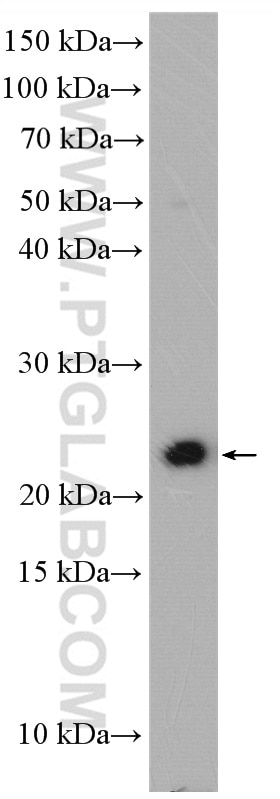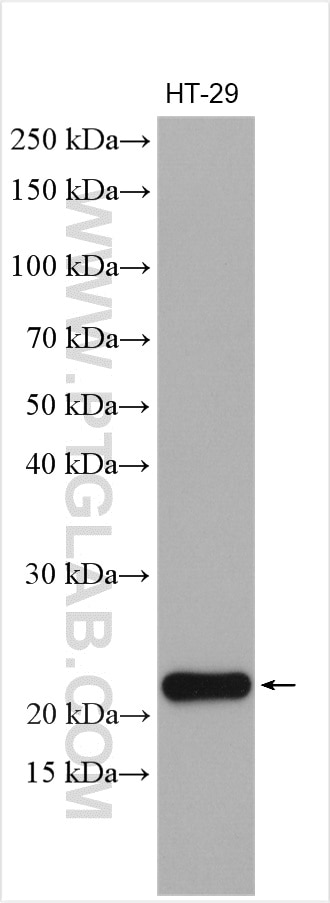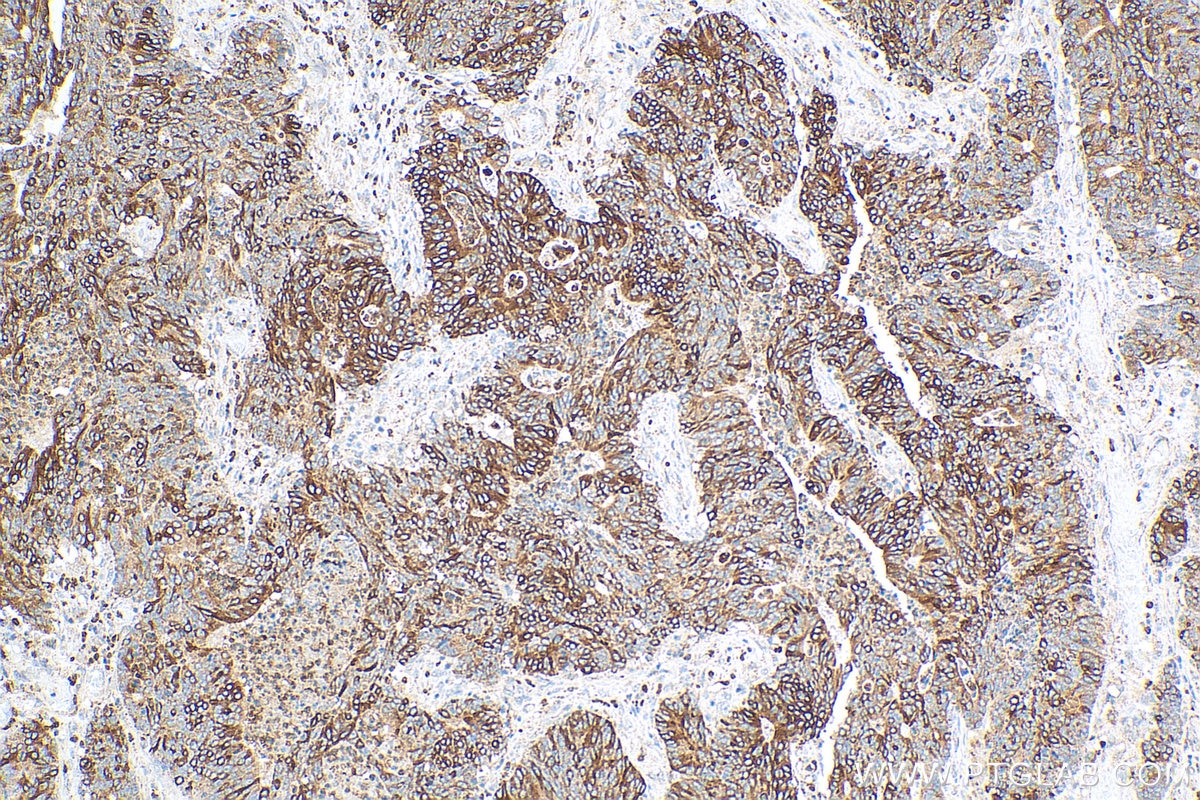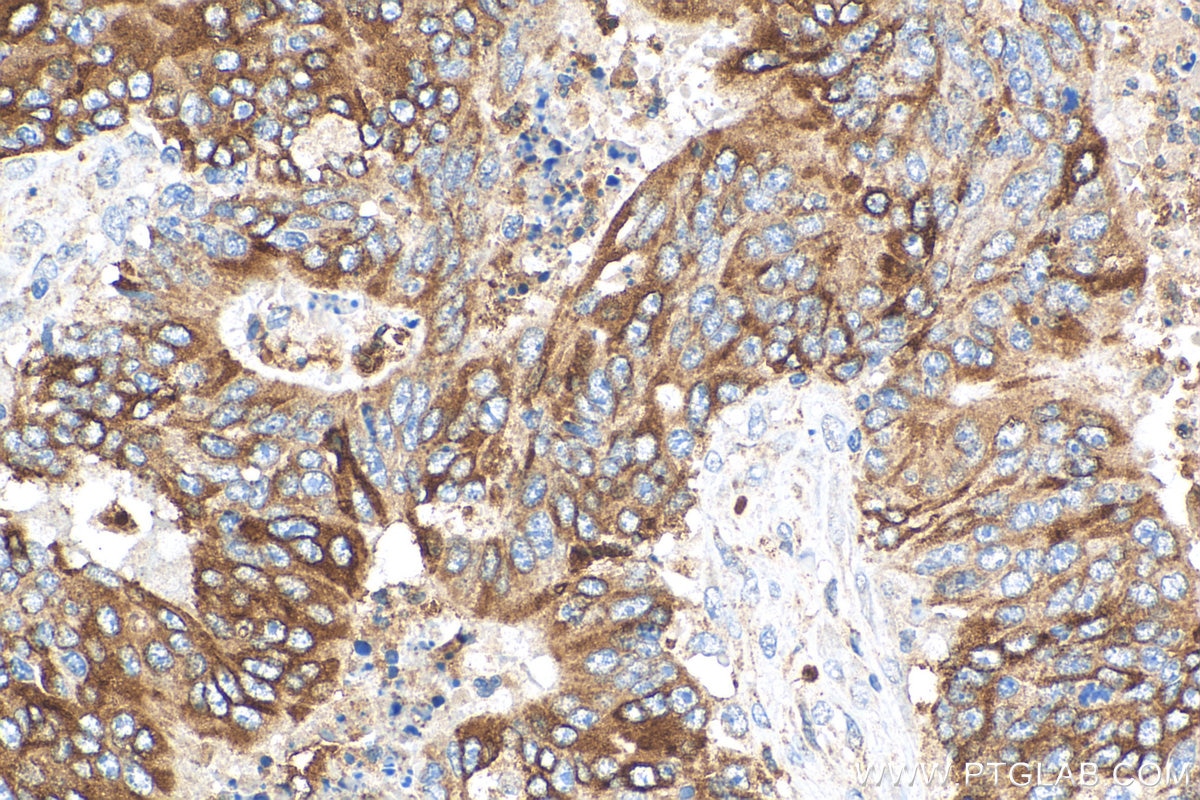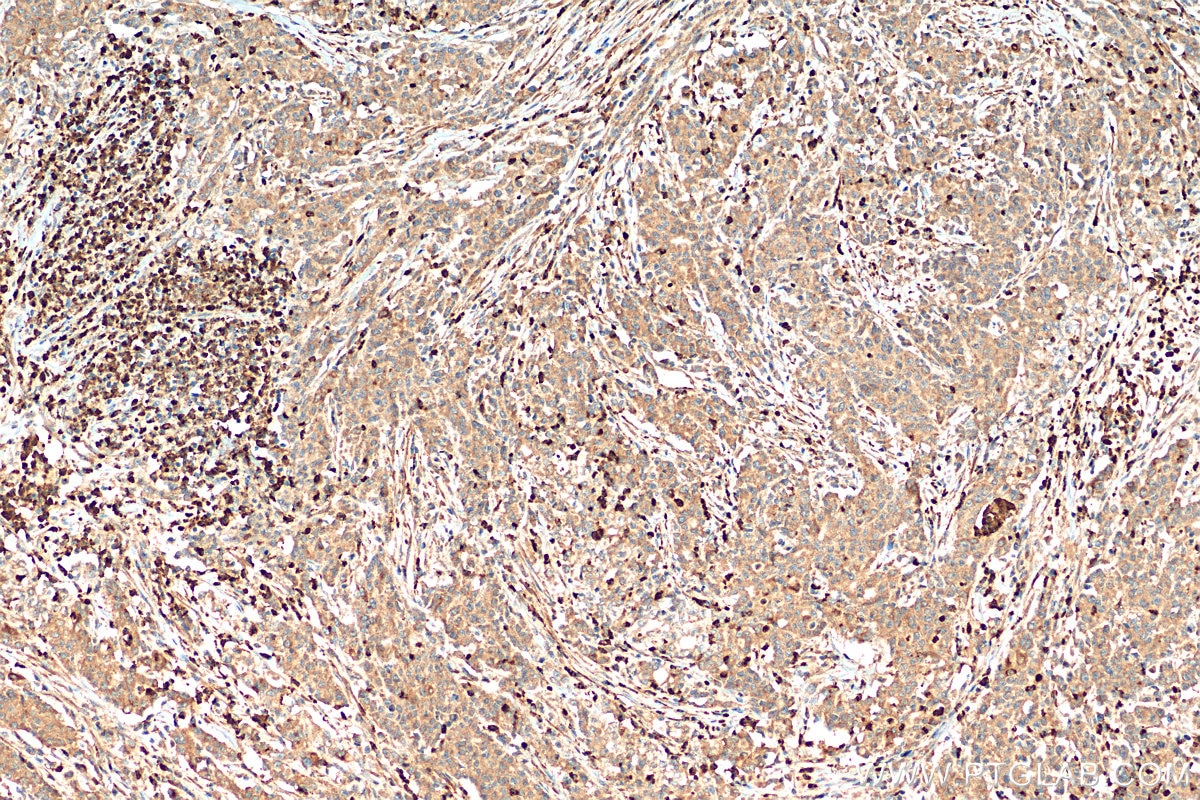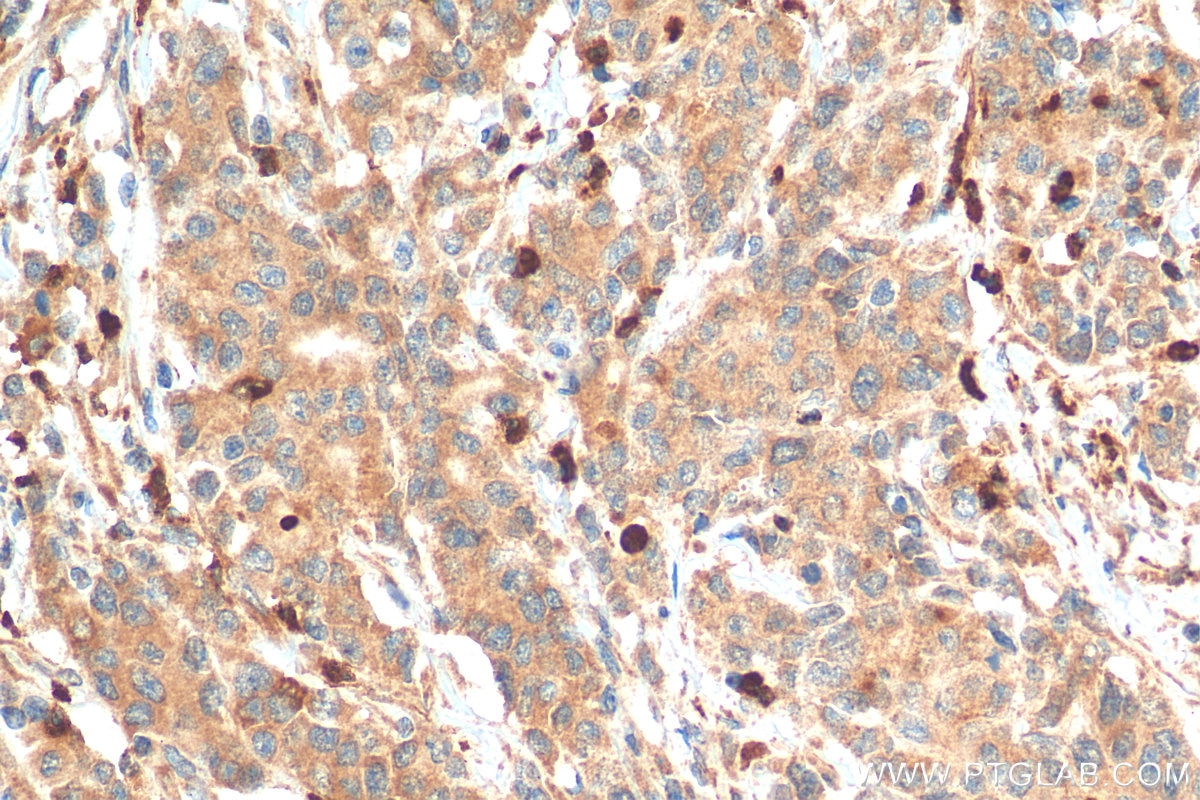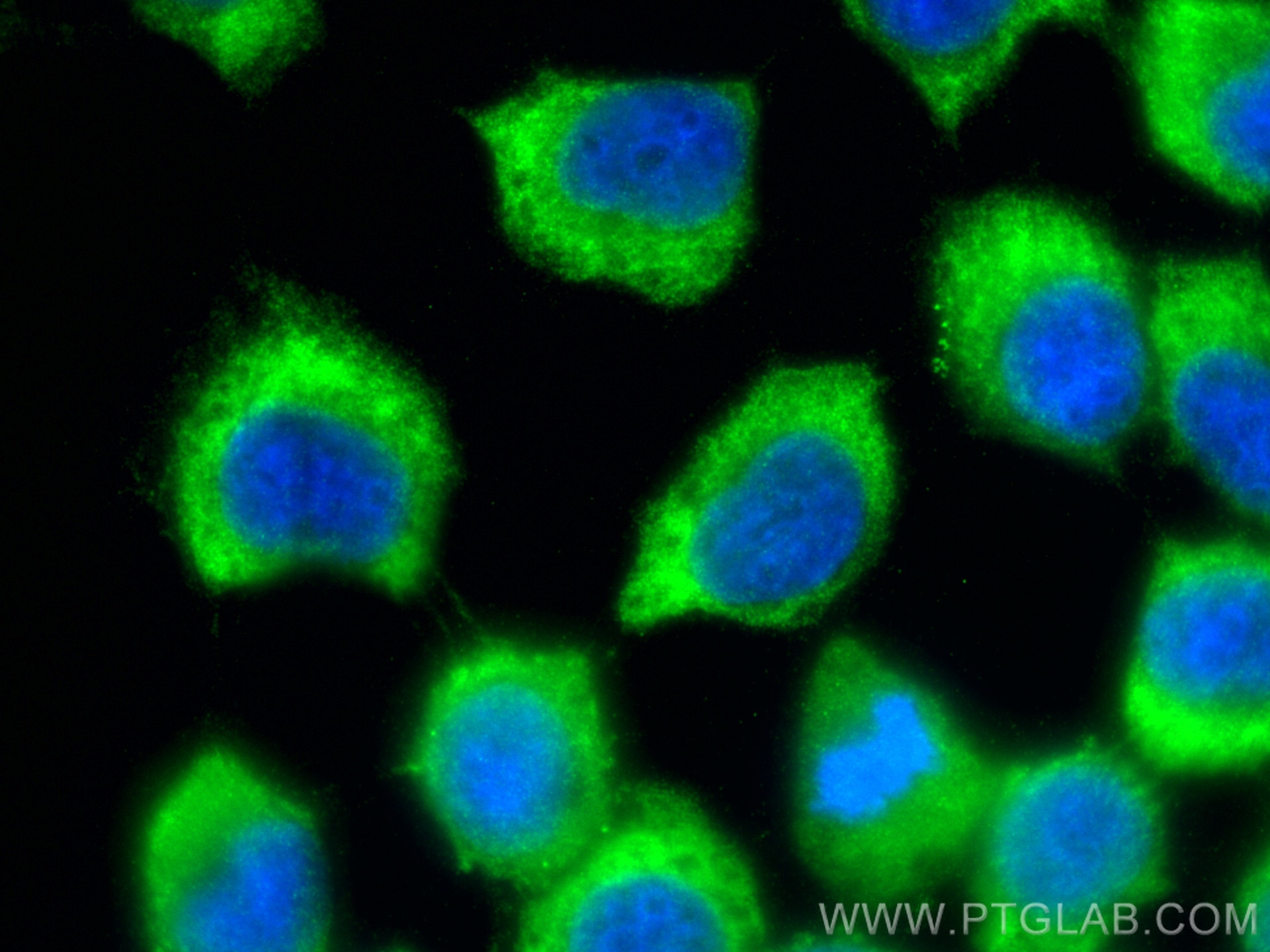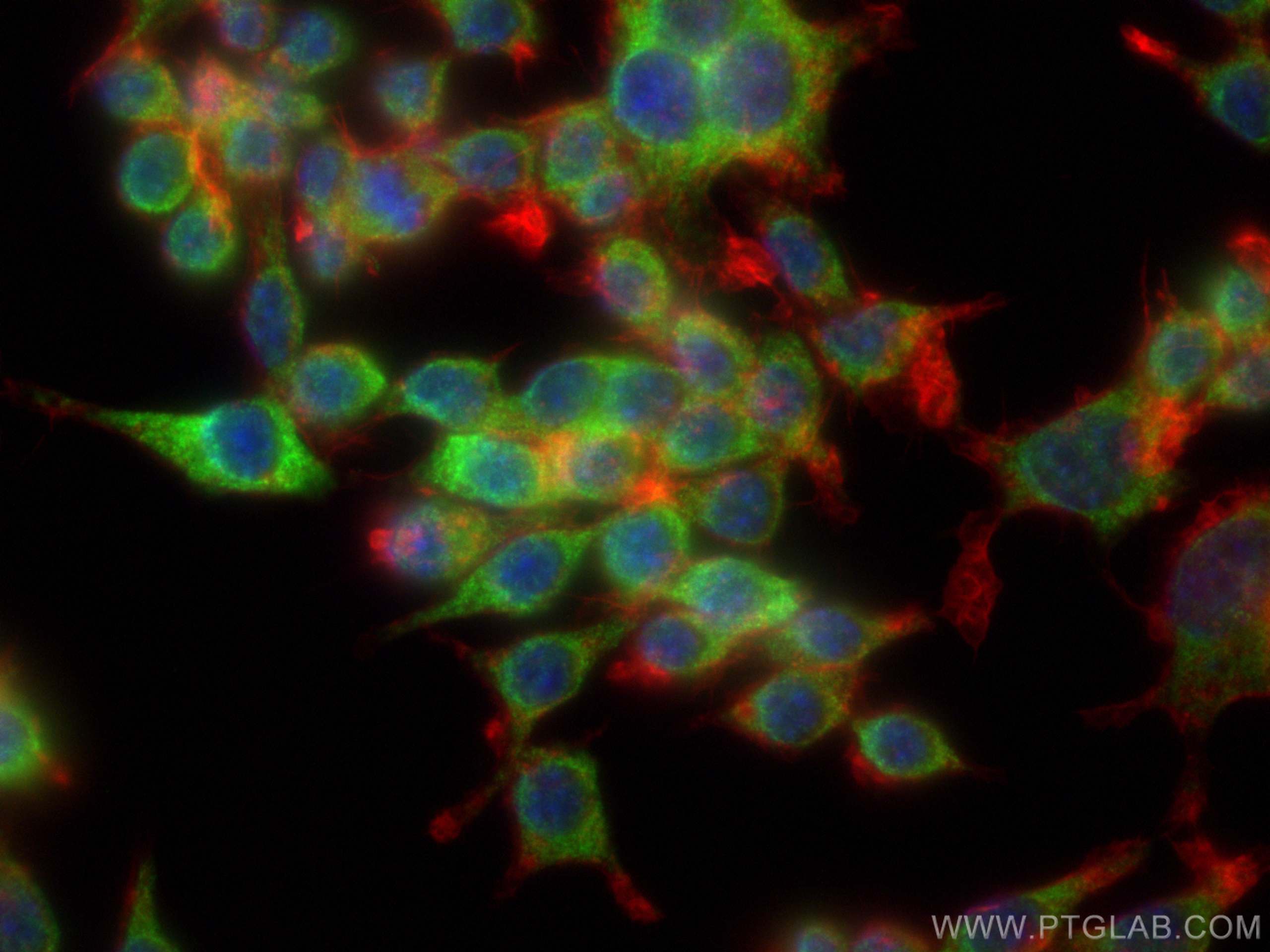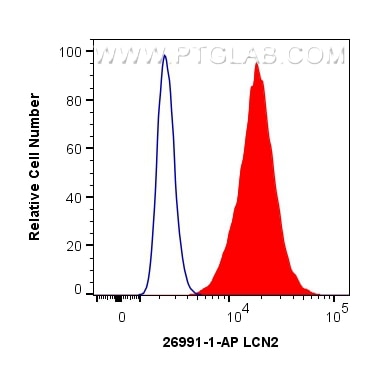- Featured Product
- KD/KO Validated
Lipocalin-2/NGAL Polyklonaler Antikörper
Lipocalin-2/NGAL Polyklonal Antikörper für FC, IF, IHC, WB, ELISA
Wirt / Isotyp
Kaninchen / IgG
Getestete Reaktivität
human, Maus
Anwendung
WB, IHC, IF, FC, ELISA
Konjugation
Unkonjugiert
Kat-Nr. : 26991-1-AP
Synonyme
Galerie der Validierungsdaten
Geprüfte Anwendungen
| Erfolgreiche Detektion in WB | HT-29-Zellen, human saliva |
| Erfolgreiche Detektion in IHC | humanes Kolonkarzinomgewebe, humanes Magenkrebsgewebe Hinweis: Antigendemaskierung mit TE-Puffer pH 9,0 empfohlen. (*) Wahlweise kann die Antigendemaskierung auch mit Citratpuffer pH 6,0 erfolgen. |
| Erfolgreiche Detektion in IF | RAW 264.7-Zellen, A431-Zellen |
| Erfolgreiche Detektion in FC | A431-Zellen |
Empfohlene Verdünnung
| Anwendung | Verdünnung |
|---|---|
| Western Blot (WB) | WB : 1:2000-1:10000 |
| Immunhistochemie (IHC) | IHC : 1:50-1:500 |
| Immunfluoreszenz (IF) | IF : 1:50-1:500 |
| Durchflusszytometrie (FC) | FC : 0.40 ug per 10^6 cells in a 100 µl suspension |
| It is recommended that this reagent should be titrated in each testing system to obtain optimal results. | |
| Sample-dependent, check data in validation data gallery | |
Veröffentlichte Anwendungen
| KD/KO | See 3 publications below |
| WB | See 16 publications below |
| IHC | See 8 publications below |
| IF | See 5 publications below |
Produktinformation
26991-1-AP bindet in WB, IHC, IF, FC, ELISA Lipocalin-2/NGAL und zeigt Reaktivität mit human, Maus
| Getestete Reaktivität | human, Maus |
| In Publikationen genannte Reaktivität | human |
| Wirt / Isotyp | Kaninchen / IgG |
| Klonalität | Polyklonal |
| Typ | Antikörper |
| Immunogen | Lipocalin-2/NGAL fusion protein Ag25715 |
| Vollständiger Name | lipocalin 2 |
| Beobachtetes Molekulargewicht | 25 kDa |
| Gene symbol | LCN2 |
| Gene ID (NCBI) | 3934 |
| Konjugation | Unkonjugiert |
| Form | Liquid |
| Reinigungsmethode | Antigen-Affinitätsreinigung |
| Lagerungspuffer | PBS mit 0.02% Natriumazid und 50% Glycerin pH 7.3. |
| Lagerungsbedingungen | Bei -20°C lagern. Nach dem Versand ein Jahr lang stabil Aliquotieren ist bei -20oC Lagerung nicht notwendig. 20ul Größen enthalten 0,1% BSA. |
Hintergrundinformationen
Lipocalin-2 (LCN-2) is a adipocytokine also referred to as neutrophil gelatinase-associated lipocalin (NGAL). Lipocalin-2 is a circulatory protein responsible for the transportation of small and hydrophobic molecules to target organs. Lipocalin-2 is used as a biomarker for acute and chronic renal injury. It is present in a large variety of cells including neutrophil, hepatocytes, lung, bone marrow, adipose tissue, macrophages, thymus, non-neoplastic breast duct, prostate, and renal cells. Different functions have been associated with Lipocalin-2, including antibacterial, anti-inflammatory, and protection against cell and tissue stress (PMID:34463264).
Protokolle
| Produktspezifische Protokolle | |
|---|---|
| WB protocol for Lipocalin-2/NGAL antibody 26991-1-AP | Protokoll herunterladen |
| IHC protocol for Lipocalin-2/NGAL antibody 26991-1-AP | Protokoll herunterladen |
| IF protocol for Lipocalin-2/NGAL antibody 26991-1-AP | Protokoll herunterladen |
| FC protocol for Lipocalin-2/NGAL antibody 26991-1-AP | Protokoll herunterladen |
| Standard-Protokolle | |
|---|---|
| Klicken Sie hier, um unsere Standardprotokolle anzuzeigen |
Publikationen
| Species | Application | Title |
|---|---|---|
J Neurol Neurosurg Psychiatry Molecules of senescent glial cells differentiate Alzheimer's disease from ageing | ||
Cell Chem Biol 3D two-photon brain imaging reveals dihydroartemisinin exerts antiepileptic effects by modulating iron homeostasis. | ||
Oxid Med Cell Longev Sirtuin 1 Induces Choroidal Neovascularization and Triggers Age-Related Macular Degeneration by Promoting LCN2 through SOX9 Deacetylation.
| ||
Gastric Cancer Lipocalin-2 negatively regulates epithelial-mesenchymal transition through matrix metalloprotease-2 downregulation in gastric cancer.
| ||
iScience Mutational burden of XPNPEP3 leads to defects in mitochondrial complex I and cilia in NPHPL1 | ||
iScience IRP1 mediated ferroptosis reverses temozolomide resistance in glioblastoma via affecting LCN2/FPN1 signaling axis depended on NFKB2 |
